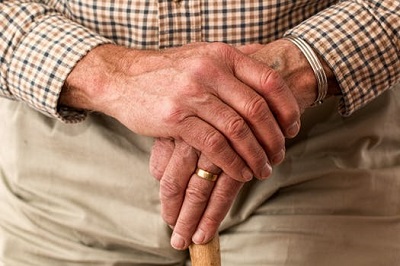People diagnosed with cancer should receive enhanced psychological and emotional support, after a new national study shows they are significantly more prone to taking their own lives.
The new figures from Public Health England (PHE) reveal that cancer patients have a 20% increased risk of suicide, with the highest risk seen in the first six months following diagnosis.
 Results from the national study – the first of its kind in England – also show that types of cancer with the poorest prognoses are linked to the highest risk of suicide. These ‘high risk’ cancers include mesothelioma, pancreatic cancer, oesophageal cancer, lung cancer and stomach cancer.
Results from the national study – the first of its kind in England – also show that types of cancer with the poorest prognoses are linked to the highest risk of suicide. These ‘high risk’ cancers include mesothelioma, pancreatic cancer, oesophageal cancer, lung cancer and stomach cancer.
Carried out in collaboration with University College London, the study looked at adults diagnosed with malignant cancer over a 20-year period from PHE’s National Cancer Registration and Analysis Service, compared with mortality data taken from the Office for National Statistics. It identified 2,491 cancer patients whose cause of death was recorded as suicide or an open verdict.
More work is needed to gain a better understanding of the complex reasons why some people diagnosed with cancer – and especially certain types of cancer – choose to take their own lives. Reasons could include fear of pain and suffering from the cancer or treatment side-effects, not wanting to become a burden on others, or a feeling that death is inevitable.
In fact, advances in cancer care and treatment mean more people with cancer are surviving and living longer. However, the study results suggest many people struggle to come to terms with their initial diagnosis and need an enhanced degree of professional support. They highlight the need for emotional support – including targeted psychological screening – to be integrated early and routinely into cancer care, alongside diagnosis and treatment. It is important for health professionals to consider the risk of suicide to help avoid potentially preventable deaths.
Dr Jem Rashbass, Cancer Lead at Public Health England, said: “Receiving a cancer diagnosis can be devastating, which is why it’s so important for every patient and their carers to get the support they need. This study shows how critical the first six months are to quality of life and reducing the risk of suicide.
“Health professionals play a vital role in offering emotional support to cancer patients at this most difficult time. It is important that they recognise the signs of depression, especially when their patients may often have many other physical needs.”
Andrew Kaye, Head of Policy at Macmillan Cancer Support, added: “Being told you have cancer is like being plunged into the unknown and can be an incredibly difficult and frightening time. That’s why it’s so important that people are given the right support to find their best way through from the moment they’re diagnosed.
“Empowering people with cancer to have difficult conversations about how they are feeling and providing vital support are critical to avoiding potentially preventable deaths. Mental health should be taken just as seriously as physical health when looking at a patient’s holistic needs.”
A wealth of information on the help and support available to people diagnosed with cancer, and their loved ones, is available on the Macmillan Cancer Support website. You can visit it by clicking here, or call the free helpline (Monday to Friday, 9am to 8pm) on 0808 808 00 00.
